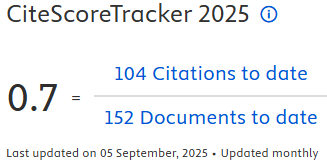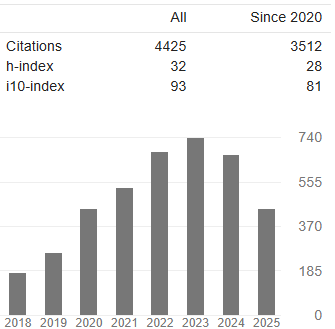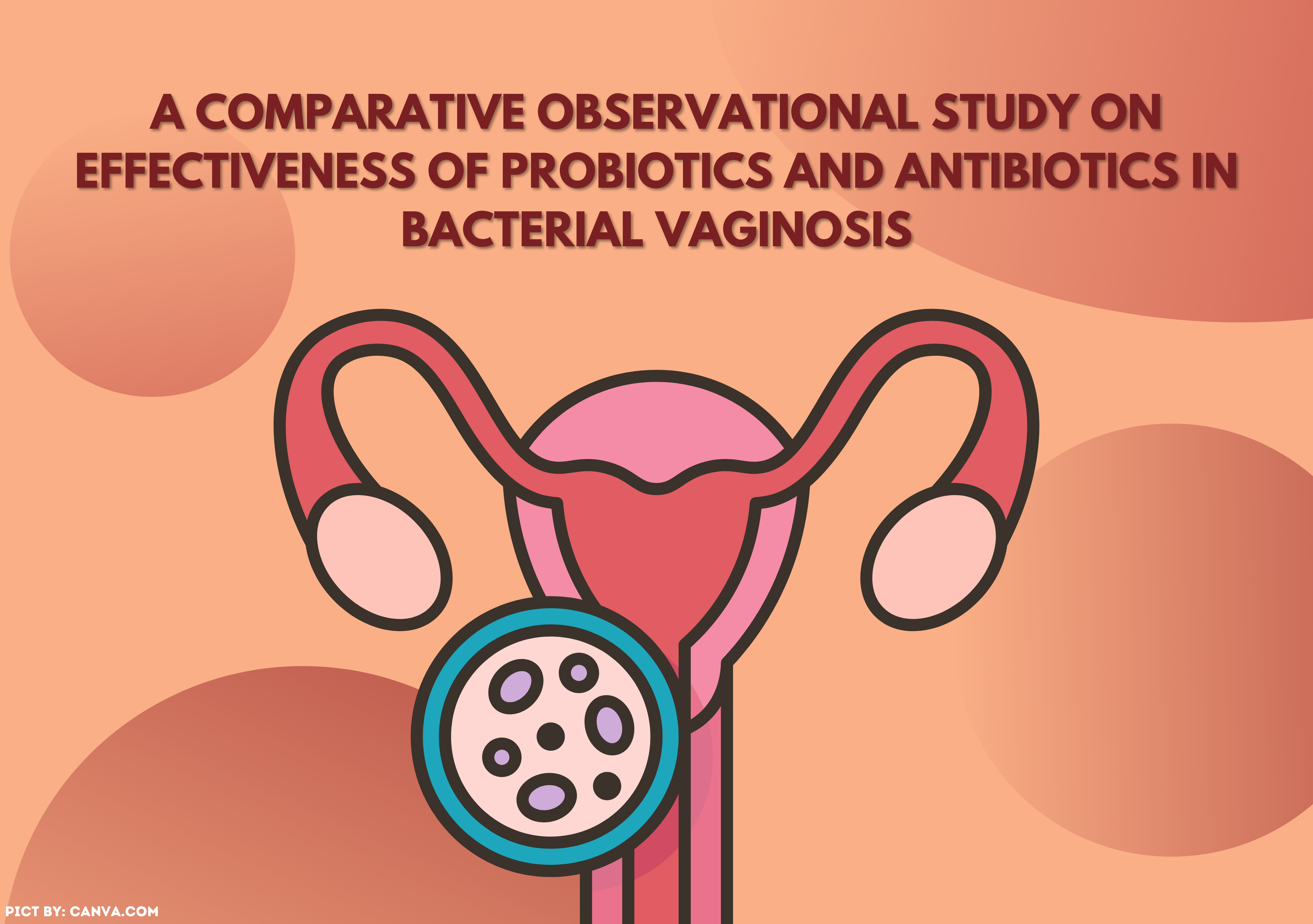THE RELATIONSHIP BETWEEN THE AVAILABILITY OF LACTATION FACILITIES, MOTHERS' KNOWLEDGE, AND EXCLUSIVE BREASTFEEDING AMONG FEMALE FACTORY WORKERS IN SIDOARJO DISTRICT
Downloads
ABSTRACT
According to UNICEF, in 2013 there were 136,700,000 live births, but only about 32.6% of these babies received breast milk exclusively. In developing countries, only about 39% of mothers breastfeed exclusively. Indonesia has targetted for 80% exclusive breastfeeding. However, it has not been achieved. A large number of women in the workforce and the unavailability of breastfeeding facilities are among the factors influencing the low coverage of exclusive breastfeeding in Indonesia. In addition, maternal knowledge is also a contributing factor for exclusive breastfeeding practices This study aims to analyze the relationship between the availability of lactation facilities and maternal knowledge with exclusive breastfeeding. The execution of this research was conducted quantitatively with the descriptive research type. The design of this study is case-control. The study's population were female factory workers who had babies in Sidoarjo District. The sample size is 42 case samples and 42 control samples. The research sample was taken using a simple random sampling technique. The data was retrieved through survey methods with questionnaires. The results of the study show that there is no relationship between knowledge and exclusive breastfeeding (p = 0.200) and there is a relationship between the availability of lactation facilities and exclusive breastfeeding (p = 0.049). Mothers who work in factories with lactation facilities have a 2.667 times greater opportunity to give exclusive breastfeeding to their babies than mothers without access to lactation facilities (OR = 2.667). The researchers suggest factories to provide lactation facilities and visitation activities by the local health office.
Keywords: Exclusive breastfeeding, Lactation facilities, Mother's knowledgeAgustina (2018) Hubungan Pemberian ASI Eksklusif dengan Kejadian Stunting pada Balita Usia 24-59 Bulan di Puskesmas Kraton Yogyakarta. Universitas 'Aisyiyah Yogyakarta.
Agustina, T. A. (2016) ‘Hubungan antara Pengetahuan dengan Pemberian ASI Eksklusif di Desa Dukuhwaru Wilayah Kerja Puskesmas Dukuhwaru Kabupaten Tegal Tahun 2015', Electronic Journal Politeknik Harapan Bersama Tegal, 5(1), pp. 123–125. doi: http://dx.doi.org/10.30591/siklus.v5i1.303.g295.
Handayani, L., Yunengsih and Solikhah (2014) ‘Hubungan Pengetahuan dan Teknik Menyusui dengan Pemberian ASI Eksklusif di Wilayah Kerja Puskesmas Pengasih II Kabupaten Kulonprogo', Jurnal Kesmasindo, 6(3), pp. 232–239.
Ministry of Health Republic of Indonesia (2014) ‘Infodatin : Situasi dan Analisis Diabetes'. Jakarta: Data and information Center.
Ministry of Health Republic of Indonesia (2015) Dukung Ibu Bekerja Beri ASI Eksklusif.
Notoatmodjo, S. (2007) Promosi Kesehatan dan Ilmu Perilaku. Jakarta: Rineka Cipta.
Notoatmodjo, S. (2010) Promosi Kesehatan Teori dan Aplikasi. Jakarta: Rineka Cipta.
Nurdiana, I. (2015) Hubungan Tingkat Pengetahuan Ibu dan Ketersediaan Fasilitas Penunjang ASI Eksklusif dengan Pemberian ASI di Wilayah Kerja Puskesmas Bonorowo Kabupaten Kebumen. Universitas Muhammadiyah Surakarta.
Paramita, I. (2016) Hubungan antara Jenis Pekerjaan Ibu dengan Keberhasilan Pemberian ASI E 6 Bulan Pertama di Puskesmas Rangkah Surabaya. Universitas Airlangga.
Pitaloka, D. A., Abrory, R. and Pramita, A. D. (2018) ‘Hubungan antara Pengetahuan dan Pendidikan Ibu dengan Pemberian ASI Eksklusif di Desa Kedungrejo Kecamatan Waru Kabupaten Sidoarjo', Amerta Nutr, 2(3), pp. 265–270. doi: 10.20473/amnt.v2.i3.2018.265-270.
Septiani, H., Budi, A. and Karbito (2017) ‘Faktor-Faktor yang Berhubungan dengan Pemberian ASI Eksklusif oleh Ibu Menyusui yang Bekerja Sebagai Tenaga Kesehatan', Aisyah: Jurnal Ilmu Kesehatan, 2(2), pp. 159–174. doi: https://doi.org/10.30604/jika.v2i2.62.
Setyawati, I. and Sutrisminah, E. (2012) ‘Pentingnya Motivasi dan Persepsi Pimpinan Terhadap Perilaku Pemberian ASI Eksklusif pada Ibu Bekerja', Majalah Ilmiah Sultan Agung, 50(127), pp. 1–14.
Sutrisno, A. H. (2015) Ketersediaan Ruang Menyusui terhadap ASI Eksklusif pada Ibu Bekerja di Sleman. Sekolah Tinggi Ilmu Kesehatan 'Aisyiyah Yogyakarta.
Yuliarti, I. D. (2008) Hubungan Pengetahuan dan Sikap Ibu dengan Perilaku Pemberian ASI Eksklusif. Universitas Sebelas Maret Surakarta.
- The authors agree to transfer the transfer copyright of the article to The Indonesian Journal of Public Health effective if and when the paper is accepted for publication.
- Authors and other parties are bound to the Creative Commons Attribution-NonCommercial-ShareAlike 4.0 International License for the published articles, legal formal aspect of journal publication accessibility refers to Creative Commons Attribution-NonCommercial-ShareAlike 4.0 International License (CC BY-NC-SA), implies that:
- Attribution ” You must give appropriate credit, provide a link to the license, and indicate if changes were made. You may do so in any reasonable manner, but not in any way that suggests the licensor endorses you or your use.
- NonCommercial ” You may not use the material for commercial purposes.
- ShareAlike ” If you remix, transform, or build upon the material, you must distribute your contributions under the same license as the original.































